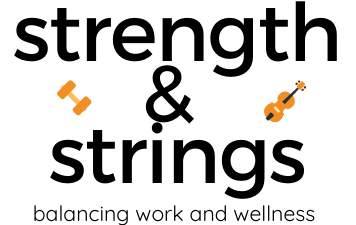
3 healthy habits that can greatly reduce stress
As I discussed in this post, stress can have a significant impact on the body. Unfortunately, we often abandon our self-care routine in order to manage a stressor. This leaves our body experiencing the effects of stress longer than we would like.
Creating and maintaining the healthy habits of eating a proper diet, taking the time to exercise and getting enough sleep can reduce the impact of stress on the body.
Eating a proper diet
When a person is reacting to a stressor, the body needs more oxygen, energy and nutrients to function.
Instead of consuming nutrient-dense foods, however, we often crave and reach for processed foods during stressful experiences.
Additionally, we may overeat or skip meals altogether to cope.
To ensure the body is getting adequate nutrition during stressful times, consider:
- Eating balanced meals (contains a carb, protein and healthy fats)
- Meal prepping (helps limit consumption of processed foods and saves time)
- Mindful eating (focusing on the meal without distractions, chewing food thoroughly)
Eating certain foods while stressed can boost serotonin levels and reduce the amount of cortisol in the body. According to this source, try incorporating the following foods and beverages:
- complex carbs (oatmeal, whole grains)
- oranges
- leafy green vegetables (spinach, kale)
- fatty fish
- nuts and seeds
- black tea
- avocado
- raw veggies (carrots, celery)
- milk
If you experience digestive issues while you are stressed, consider eating at a slower pace and avoid consuming food during and after stressful events.
Taking the time to exercise
When you exercise on a regular basis, it can help the body relax, improve your overall mood and counteract the negative effects of stress.
Exercise can reduce the physical and mental symptoms of stress. Physically, it can reduce nervous tension in the body and improve the cardiovascular system.
Mentally, exercise can function as a form of meditation since you are focusing on one task. Physical activity can increase the production of endorphins (chemicals in the brain that elevate your mood) and decrease adrenaline and cortisol production.
Regular exercise can also improve your self-confidence and encourage you to eat better.
Ideally, the U.S. Department of Health and Human Services (USDHHS) recommends that adults get 150 minutes of exercise per week (30 minutes 5x/week).
If you are short on time, consider dividing your workout session into smaller chunks throughout the day. Even 10 minutes of activity can provide benefits.
Some recommended activities for stress relief are:
- Aerobic activity (walking, running, swimming, cycling)
- Yoga
- Recreational activity (tennis, basketball)
For more guidance on incorporating exercise into your busy schedule, check out this blog post.
Getting enough sleep
Sleep is an essential bodily function like breathing. During this time, our bodies develop neural pathways to learn and remember information, repair themselves, maintains the immune system and balance hormones like leptin (controls hunger) and insulin (controls blood sugar).
During the stress response, the increased levels of cortisol and adrenaline prepare the body for a ”fight or flight” response by increasing the heart rate. This response makes it more difficult to sleep and limits the amount of time the body has to maintain and repair itself.
A lack of sleep also causes memory and concentration issues as well as changes in your mood. These symptoms may exacerbate your stress symptoms.
In addition to these symptoms, you may have increased cravings for sugary and other high calories foods since your leptin and insulin levels are imbalanced from the lack of sleep. As we learned on earlier in the blog post, junk food fails to give the body the nutrients it needs and can prolong the stress response.
Check out this post for some hacks to help you improve your sleep routine!
Summary
Eating a proper diet, taking the time to exercise and getting enough sleep can help reduce the negative effects of stress.
Consistently incorporating these healthy habits can improve your body’s response to stress!
Have you noticed a difference in your reaction to stress when you are eating well, exercising and/or getting enough sleep?






